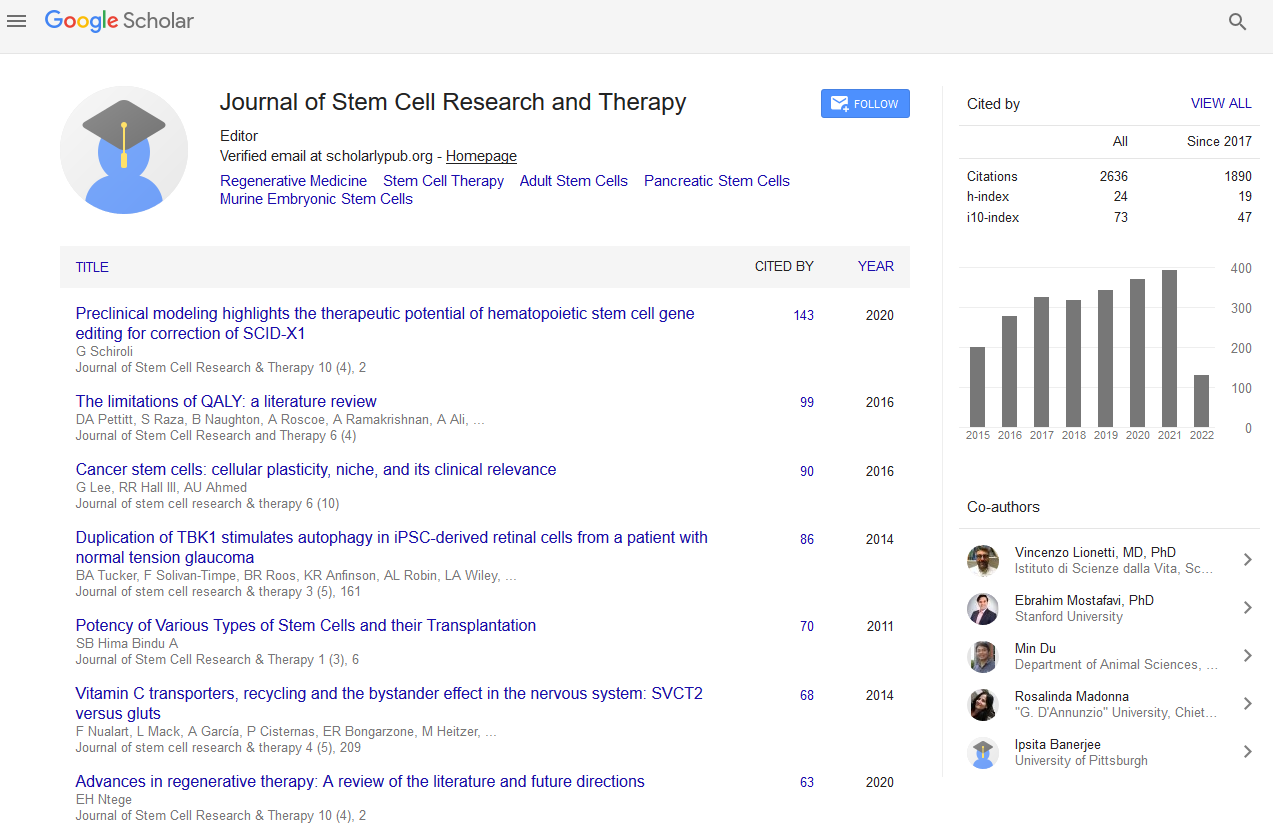Indexed In
- Open J Gate
- Genamics JournalSeek
- Academic Keys
- JournalTOCs
- China National Knowledge Infrastructure (CNKI)
- Ulrich's Periodicals Directory
- RefSeek
- Hamdard University
- EBSCO A-Z
- Directory of Abstract Indexing for Journals
- OCLC- WorldCat
- Publons
- Geneva Foundation for Medical Education and Research
- Euro Pub
- Google Scholar
Useful Links
Share This Page
Journal Flyer

Open Access Journals
- Agri and Aquaculture
- Biochemistry
- Bioinformatics & Systems Biology
- Business & Management
- Chemistry
- Clinical Sciences
- Engineering
- Food & Nutrition
- General Science
- Genetics & Molecular Biology
- Immunology & Microbiology
- Medical Sciences
- Neuroscience & Psychology
- Nursing & Health Care
- Pharmaceutical Sciences
Abstract
MSC Transplantation in Eight Severe COVID-19 Patients: Can Cytokine Storm Be Reversed?
Nesrin O. Ercelen, Beliz Bilgili, Berrin Monteleone, Fethi Gul, Gokay Rasit Gulay, Nagihan Alpaydin, Ozan T. Demir, Murat Simsek, Davut Turan, Omer Karadeniz, Elif Karadeniz, Nagihan Batñgun, Ismail Cinel
Background: In this clinical case report, we evaluated the clinical and the efficacy outcomes of Mesenchymal Stem Cells (MSCs) transplantation in eight severe COVID-19 patients with pneumonia. Methods: MSCs were administered to eight severe/critically severe patients, unresponsive to treatment algorithms patients were also reviewed without MSC transplantation. Results: could not achieve clinical improvement and passed away. In all eight patients, compared to the baseline, there was a significant decrease in CRP (p=0.036), fibrinogen (p=0.012) and Hb (p=0.03) values on post treatment day 5. While there was an increase in lymphocyte count between baseline and post treatment, the change didn’t reach statistical significance (p=0.06). There was no statistically significant change in ferritin, neutrophil count, respiratory rate, oxygen saturation, troponin and platelet count (p>0.05) between baseline and post-treatment day 5. Conclusion: Four patients were discharged from the ICU after MSC transplantation. Although there was an immediate significant improvement in their prognostic markers, the other four patients remained in critically severe condition and passed away. In two severe patients, the recovery was faster after MSC transplantation than the other two critically severe recovered patients. This may indicate the potential benefit of MSC transplantation performed in an earlier clinical stage. Moreover, we can advise MSC transplantation when the poor prognostic markers (decrease in lymphocyte number, increase in fibrinogen and CRP) are observed in the severe COVID-19 patients, to overcome alveolar damage due to “cytokine storm.” This observation may introduce an algorithm for a supportive treatment with MSC transplantation for COVID-19 patients, which needs to be confirmed by broader randomized controlled trials.
Published Date: 2020-06-26; Received Date: 2020-05-16


